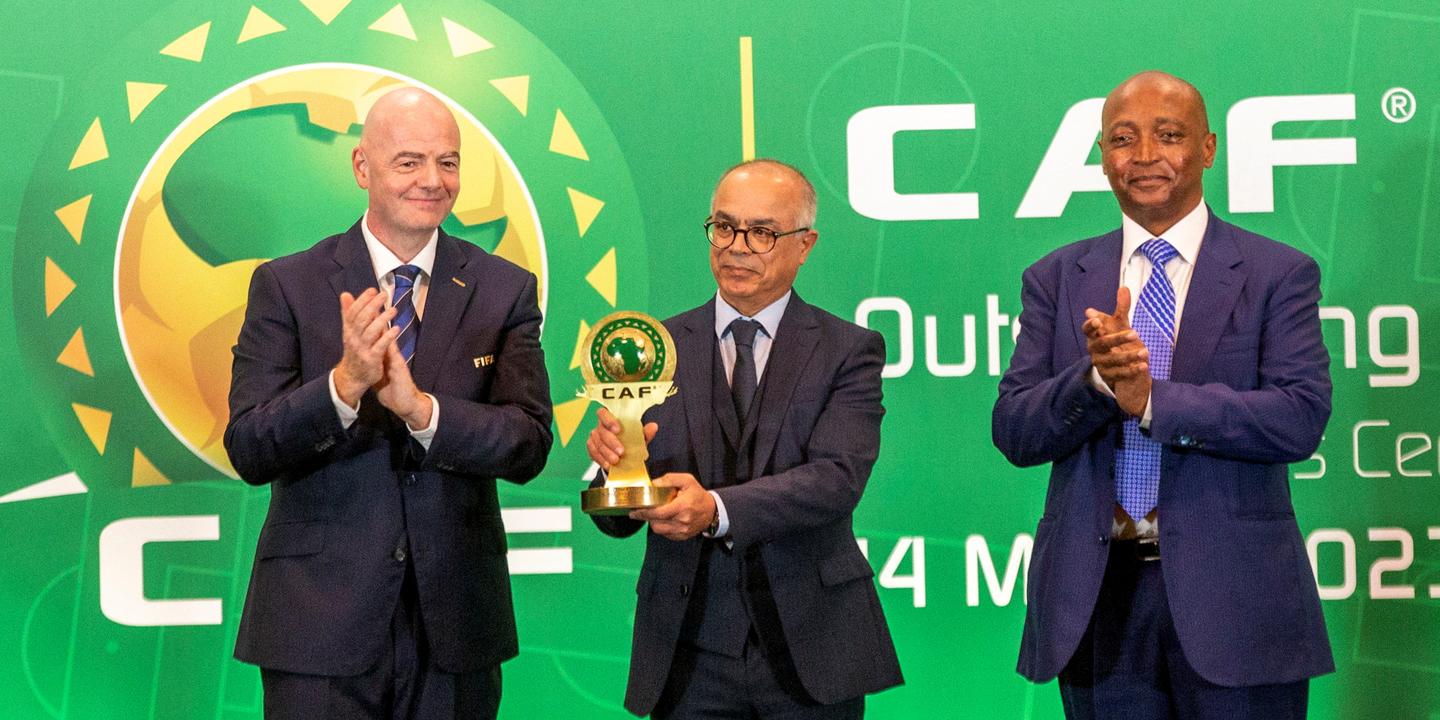
Historic First: World Football Summit in Morocco
The bustling city of Marrakech, Morocco, is not just a hub of culture and history but has now made its mark on the global football stage. For the first time, the World Football Summit (WFS) has been held on African soil, taking place from April 9 to 10, 2025. This landmark event has drawn over 1,000 delegates from 47 nations, uniting football leaders to discuss pressing issues and opportunities for sustainable growth, inclusivity, and innovation in the sport.

Fouzi Lekjaa, the President of the Moroccan Football Federation, welcomed delegates with a powerful statement: “Football is more than 90 minutes. It embodies values of inclusion, unity, and social cohesion. That’s why we’re here – to celebrate football as a global force for good.” His remarks encapsulate the spirit of the summit, which seeks to leverage the unifying power of football to address broader societal issues.
The summit serves as a robust platform for stakeholders from various sectors of the football industry, including clubs, leagues, federations, and governing bodies like FIFA and UEFA. Delegates engaged in discussions aimed at promoting business opportunities and shaping the future of football in a manner that integrates ethical practices and sustainability.
The Significance of Hosting in Morocco
As Morocco prepares to co-host the 2030 FIFA World Cup alongside Spain and Portugal, the WFS is a pivotal moment for African football. The co-hosting of the World Cup will be a historic first, marking the tournament's centenary and being the first World Cup to span two continents. The summit is seen as a stepping stone, showcasing Africa’s growing influence in the global football landscape.
“Hosting the WFS is a statement of intent from Morocco,” said Lekjaa during the opening of the event. “It signifies our commitment to elevating African football on the world stage and ensuring that we are a key player in the global football dialogue.”
Key Themes and Discussions
Throughout the summit, various themes emerged as central to the discussions. One major focus is the need for sustainable growth in the sport. As global football grapples with issues like climate change and economic challenges, leaders discussed strategies for reducing the sport's environmental impact while maintaining its commercial viability.
Inclusivity in football was another significant topic. The summit highlighted the importance of creating pathways for underrepresented groups, including women and marginalized communities, to participate at all levels of the game. By addressing these issues, the football community aims to create a more equitable sport that reflects the diversity of its global fanbase.
Discussions also revolved around leveraging technology and innovation. The introduction of advanced analytics and data-driven decision-making has revolutionized how clubs operate, from player recruitment to match preparation. The summit served as a forum for sharing best practices and exploring emerging technologies that can further enhance the game.
High-Profile Speakers and Panels
The summit featured a lineup of esteemed speakers, including prominent figures from the football world. Industry leaders shared insights on various topics, including the future of football finance, the role of digital media in fan engagement, and the significance of grassroots initiatives in fostering talent.
Among the speakers was Gianni Infantino, President of FIFA, who emphasized the need for unity in football. “We must work together to grow our sport sustainably while ensuring that all voices are heard,” he stated. His presence underscored FIFA's commitment to supporting initiatives that promote inclusivity and development in football.
A series of panels provided delegates the opportunity to engage in dialogue on specific topics, including the economic impact of football in emerging markets and strategies for enhancing fan engagement through digital platforms. The discussions were well-received, with many praising the collaborative atmosphere that encouraged open exchange of ideas.
Looking Ahead: The Future of Football
As the summit concluded, discussions turned towards the future of football. With the upcoming 2030 FIFA World Cup on the horizon, Morocco’s hosting of the WFS is seen as a critical moment in showcasing the country's readiness to welcome the world. The collaboration with Spain and Portugal also highlights the growing trend of joint bids for major tournaments, presenting opportunities for shared resources and co-development initiatives.
The next World Football Summit is scheduled to take place in Riyadh, Saudi Arabia, from December 10 to 11, 2025. This transition to the Middle East further reflects the region’s increasing influence in the football industry, with initiatives aimed at fostering growth and encouraging investment in the sport.
In conclusion, the historic World Football Summit in Morocco marks a significant milestone not only for African football but for the global football community. By fostering dialogue among leaders and stakeholders, the summit has set the stage for meaningful change in the sport, promoting sustainable practices and inclusivity while paving the way for the next generation of footballers and fans. The echoes of this event will undoubtedly resonate as Morocco and its partners move forward towards the 2030 World Cup, ready to embrace the world of football with open arms.
